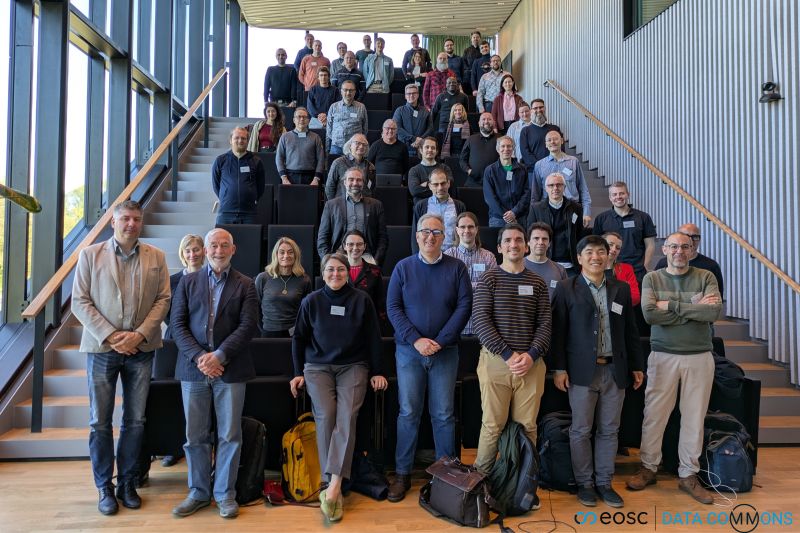Nathalie Fargier, Director of the CCSD, represented the CNRS alongside Sorina Pop from the Creatis laboratory at the launch meeting of the European EOSC Data Commons project. This took place in Amsterdam from 7 to 9 April.
While scientific research generates more data than ever before, managing and optimally exploiting it is not always straightforward. The EOSC Data Commons project aims to create a reliable digital ecosystem within the European Open Science Cloud (EOSC), helping to break down research data silos and make data more usable across all fields.
Supported by European and national funding, this new initiative brings together 22 European partners.

The mission ot the EOSC Data Commons project is to support the establishment of the EOSC as a trusted research commons. This ecosystem aims to provide researchers with seamless access to high-quality, interoperable results and services.
The project focuses on improving the entire research data lifecycle – supporting discovery, analysis, deposition, preservation, sharing, and reuse – within a European data and compute continuum.
Il will include:
- AI-based Analytics-Oriented Metadata Warehouse and Discovery Service,
- Federation of data repositories enhanced with scientific applications and data analytics tools,
- Catalogue of data analytics tools for seamless integration,
- Execution Service enabling the deployment and execution of analytical tools,
- Metadata specifications to ensure reproducibility and interoperability,
- FAIRness assessment and reproducibility tools, along with related policies.
The CCSD is involved in Work Package 7, with HAL being one of the use cases identified as part of the project. It will collaborate with COAR to identify criteria and best practices for data repositories.